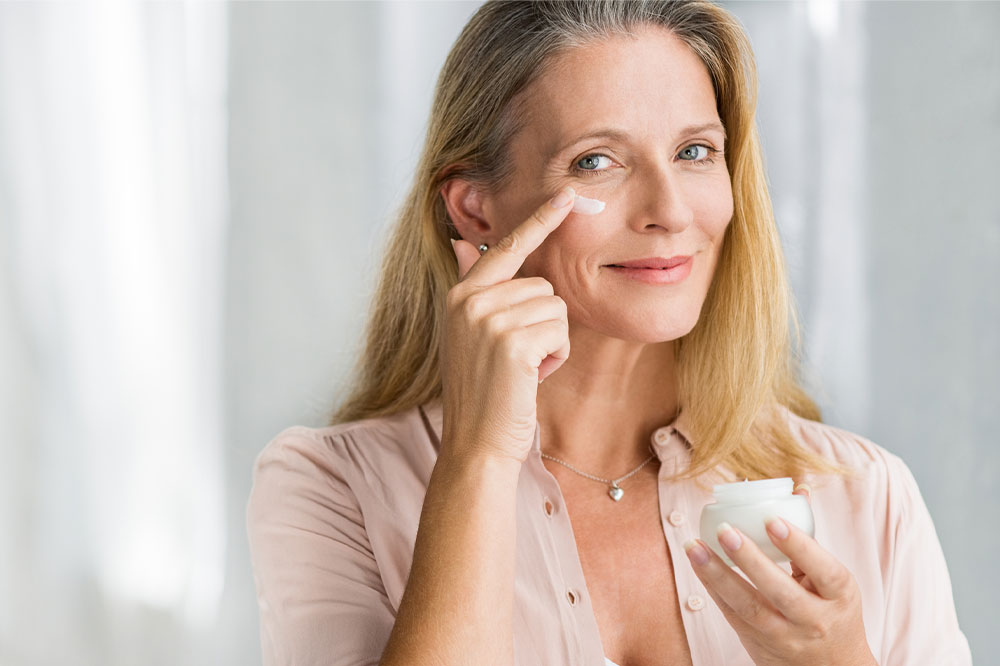Top 8 Moisturizers for Mature Skin

Regardless of age, everyone wishes to have blemish-free skin that looks radiant and healthy. However, achieving this goal is much easier said than done. As a person grows older, the skin also starts showing signs of aging, such as fine lines and wrinkles. As a result, the skincare products one used in their 20s might not be as effective in their 50s. Caring for mature skin requires a different approach.
Best moisturizers for mature skin
Different types of moisturizers are available for every skin type, including mature skin, which means there is something for everyone. But this also makes sifting through all the products and choosing a particular option quite challenging. Keeping this in mind, we have listed the top moisturizers to consider for mature skin:
CeraVe Moisturizing Cream
One of the most popular options on the market, CeraVe Moisturizing Cream is cost-effective and contains all the ingredients healthy skin requires. This includes glycerin, hyaluronic acid, and ceramides, which help keep the skin supple and hydrated. Although this moisturizing cream has a rich, creamy texture, it is not heavy or oily, proving to be an excellent option for everyday use. Furthermore, it is suitable for sensitive skin and is completely fragrance-free!
Olay Total Effects 7-in-1 Daily Face Moisturizer
Another moisturizing cream that checks all the right boxes is the Olay Total Effects 7-in-1 Daily Face Moisturizer. It has an antioxidant-rich formula for bright and healthy skin and sun protection factor (SPF) 30 for defense against the sun’s harmful rays. Furthermore, this cream is powered by vitamins E and C, providing the skin with moisture and keeping it hydrated for longer. An important feature that sets this product apart from others is that one can apply cosmetics on top of it without the fear of accumulating fine lines and wrinkles.
Vichy Aqualia Thermal Rich Cream
The best moisturizers usually have a mix of humectants and emollients, key ingredients that attract and lock in moisture. The Vichy Aqualia Thermal Rich Cream contains both of these in the form of hyaluronic acid, glycerin, and shea butter to ensure supple, glowing skin. However, it does have a light fragrance, so people with sensitive skin may choose to steer clear of it. If one does not mind the scent, this affordable and beauty-enriching moisturizer is worth considering.
Olay Regenerist Micro-Sculpting Cream
Those struggling with hyperpigmentation spots or dark marks may benefit from moisturizers with niacinamide (vitamin B3). This powerhouse ingredient helps stop the transfer of melanin in skin cells and acts as a humectant, preventing additional moisture loss from the skin. The Olay Regenerist Micro-Sculpting Cream not only has niacinamide but is also fragrance-free, proving to be one of the best options for mature and sensitive skin. Of course, it also has other common ingredients like glycerin and hyaluronic acid, which blend to keep the skin hydrated, supple, plump, and beautiful.
EltaMD UV Elements Tinted Broad Spectrum SPF 44
This EltaMD cream is excellent for daily application on mature skin. It acts as a combination of both moisturizer and sunscreen in a single bottle. The cream has ingredients that provide broad-spectrum UV protection and hyaluronic acid that blurs pigment irregularities, fine lines, and blotchiness—the major concerns of people with mature skin. Hence, experts recommend applying the cream to the face, hands, neck, and decolletage for overall hydration, protection, and beauty.
Fresh Lotus Youth Preserve Moisturizer
The custardy Fresh Lotus Youth Preserve Moisturizer is suitable for people with blemishes and extremely dry skin. It has antioxidants with free radical damage-preventing properties extracted from lotuses. These antioxidants help slow the effects of aging and reduce the presence of fine lines and wrinkles on the skin. The cream also has hyaluronic acid, a water-replenishing humectant for even moisturization all over the skin.
Neutrogena Rapid Wrinkle Repair Retinol Moisturizer
The Neutrogena Rapid Wrinkle Repair Retinol Moisturizer is perfect for mature skin. It effectively targets some of the most common signs of aging, such as moisture loss, laxity, and fine lines, and protects the skin and helps keep it hydrated throughout the day. The cream’s special ingredient, retinol, helps increase skin cell production and unclog pores. It also exfoliates the skin and increases collagen production to significantly reduce wrinkles and fine lines, giving mature skin a fresher and healthier look. However, retinol may cause the skin to become more sensitive to light. So, experts suggest using a good SPF to protect the skin against harmful sun rays and their effects while using this product.
TreeActiv Crepey Skin Repair Treatment
As the skin ages and becomes mature, one must be extra careful to prevent the signs of aging on not only the face but also other parts of the body, such as the hands. At times like these, one can opt for anti-wrinkle hand creams from TreeActiv. The brand’s Crepey Skin Repair cream contains hyaluronic acid to tighten, condition, and soften crepe-paper-like skin. It also possesses the goodness of shea butter and glycolic acid that can effectively soften wrinkles, fine lines, and sunspots. Further, the cream boasts pure vitamin E oil and manuka honey, which work as stretch mark removers, and sunflower and aloe vera oil to ensure optimum hydration in mature and crepey skin. It can be applied to the hands and even other problem areas of the body.
Besides using the moisturizers mentioned above all year round, one must use the right toner and sunscreen. Individuals can speak to a healthcare expert to understand which skincare products are the best for their skin type. Maintaining a healthy skincare routine is also vital to combat the effects of mature skin. One should limit bath time, avoid exposure to the sun, and add skin-healthy foods to meals for the best results.


